 W
WCarl Johan Adlercreutz was a Swedish (Finnish) general and statesman, born in Borgå, Finland on family estates. Entering the Swedish army aged 13 in the Finnish Light Cavalry Brigade, he was present when Gustav III launched his coup-d’etat. He studied military theory in Stockholm.
 W
WCount Georg Adlersparre was a Swedish army commander, politician and writer.
 W
WCarl Gustaf Armfeldt was a Swedish officer, general and friherre (baron) who took part in the Great Northern War.
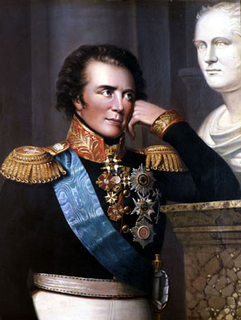 W
WCount Gustaf Mauritz Armfelt was a Finnish, Swedish and Russian courtier and diplomat. In Finland, he is considered one of the greatest Finnish statesmen. His advice to Russia's Tsar Alexander I was of utmost importance for securing the autonomy of the Grand Duchy of Finland.
 W
WBernhard Gustav von Baden-Durlach OSB was a Major General in the Swedish army. After his conversion to Catholicism, he was Abbot of Fulda and Kempten Abbey and also cardinal.
 W
WCount Magnus Fredrik Ferdinand Björnstjerna,, was a Swedish count and military general, son of the envoy to Sachsen Magnus Olof Björnstjerna and his wife, countess Vilhelmina von Hagen. He was the grandson of archbishop Magnus Beronius.
 W
WCount Nils Magnus Brahe (1790–1844) was a Swedish statesman and soldier, known as the influential favorite of king Charles XIV John of Sweden.
 W
WHenrik Magnus von Buddenbrock was a Swedish baron and Lieutenant General. He and Carl Emil Lewenhaupt were executed for negligence in the Russo-Swedish War, in the aftermath of the defeat at Villmanstrand.
 W
WCarl XVI Gustaf is the King of Sweden. He ascended the throne on the death of his grandfather, King Gustaf VI Adolf, on 15 September 1973.
 W
WGustaf Albrecht Bror Cederström was a Swedish baron and lieutenant general and Minister of War.
 W
WMajor general (generalfältvaktmästare) Samuel Cockburn was a Scottish soldier in the service of Sweden. He was born around 1574 in Scotland. He entered Swedish service in 1598 where he participated in the Swedish civil war between Sigismund Vasa and Duke Karl Karl IX.
 W
WCount Magnus Gabriel De la Gardie was a Swedish statesman and military man. He became a member of the Swedish Privy Council in 1647 and came to be the holder of three of the five offices counted as the Great Officers of the Realm, namely Lord High Treasurer, Lord High Chancellor and Lord High Steward. He also served as Governor-General in the Swedish dominion of Livonia.
 W
WMagnus Julius De la Gardie, son of Axel Julius De la Gardie, was a Swedish general and statesman, member of the Swedish Hats Party.
 W
WGeorg Carl von Döbeln was a Swedish friherre (baron), Lieutenant General and war hero.
 W
WAnders Rudolf du Rietz was a Swedish count, lieutenant-general, commander grand cross of the Order of the Sword, County Governor and politician.
 W
WEberhard Ernst Gotthard von Vegesack was a German-born officer in the Swedish Army who was active from the Russo-Swedish War to the Swedish–Norwegian War.
 W
WHans Axel von Fersen, known as Axel de Fersen in France, was a Swedish count, Marshal of the Realm of Sweden, a General of Horse in the Royal Swedish Army, one of the Lords of the Realm, aide-de-camp to Rochambeau in the American Revolutionary War, diplomat and statesman, and a friend of Queen Marie-Antoinette of France. He died at the hands of a Stockholm lynch mob.
 W
WSir George Fleetwood (1605–1667) was an Englishman who became a Swedish general and baron.
 W
WNils Carlsson Gyllenstierna af Fogelvik, a member of the Swedish baronial family of Gyllenstierna, was a Swedish field-marshal, member of the Royal Council, president of the Board of War, and governor-general of Bremen-Verden. Rewarded with the earldom of Fogelvik, he belonged to the cautious senior officers, who he hesitated when faced with Charles XII's aggressive plans, and allied with his son-in-law Arvid Horn in opposition to the King.
 W
WFrederick II of Hesse-Homburg, also known as the Prince of Homburg was Landgrave of Hesse-Homburg. He was also a successful and experienced general for the crowns of both Sweden and of Brandenburg, but is best remembered as the eponymous hero of Heinrich von Kleist's play Der Prinz von Homburg.
 W
WCount Arvid Bernhard Horn af Ekebyholm was a Swedish general, diplomat and politician, a member of the noble Horn family. He served twice as President of the Privy Council Chancellery and was one of the leading figures of the Swedish Age of Liberty.
 W
WHenrik Horn was a Swedish Nobleman (friherre), Admiral and member of the Privy Council of Sweden.
 W
WAxel Jönsson Kurck, born 1555, died 30 March 1630 in Nakkila) was a colonel in the Swedish army and nobleman. He was a member of the Kurki of Laukko family.
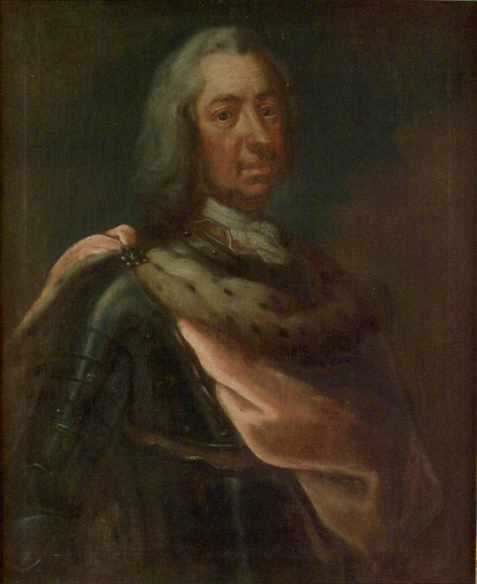 W
WCharles Emil Lewenhaupt the Elder was a Swedish general.
 W
WCount Carl Gustaf Löwenhielm was a Swedish diplomat and Lieutenant general.
 W
WCount Gustaf Carl Fredrik Löwenhielm was a Swedish general and diplomat.
 W
WJohn Mackenzie, Lord MacLeod was a Scottish Jacobite and soldier of fortune.
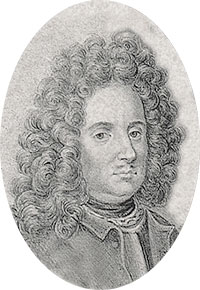 W
WFreiherr Arvid Axel Mardefelt was a Swedish Infantry General from the 18th century and a familiar of Charles XII of Sweden during the Great Northern War.
 W
WJohan August Meijerfeldt (1664–1749) was a Swedish general and civil servant. To distinguish him from his son who had an identical name, he is generally referred to as Johan August Meijerfeldt the Elder.
 W
WCount Johan August Meijerfeldt (1725-1800) was a Swedish field marshal. To distinguish him from his father, Johan August Meijerfeldt the Elder, he is generally referred to as Johan August Meijerfeldt the Younger.
 W
WCount Axel Otto Mörner was a Swedish artist and general.
 W
WOtto Louis of Salm, Wild- and Rhinegrave of Kyrburg and Mörchingen was a Swedish general during the Thirty Years' War. He was governor in the Alsace and Commander of the Swedish troops in the Upper Rhine. He died of the plague at Speyer and was buried in Strasbourg Cathedral.
 W
WBaron Carl Fredrik Pechlin was a Swedish politician and demagogue.
 W
WMajor General Lena Maria Persson Herlitz is a Swedish Amphibious Corps officer. She currently serves as Chief of Policy and Plans Department at the Swedish Armed Forces Headquarters in Stockholm.
 W
WStanisław Poniatowski was a Polish military commander, diplomat, and noble. Throughout his career, Poniatowski served in various military offices, and was a general in both the Swedish and Polish–Lithuanian militaries. He also held numerous civil positions, including those of podstoli of Lithuania and Grand Treasurer of the Lithuanian army in 1722, voivode of the Masovian Voivodeship in 1731, regimentarz of the Crown Army in 1728, and castellan of Kraków in 1752. Throughout his lifetime, he served in many starost positions.
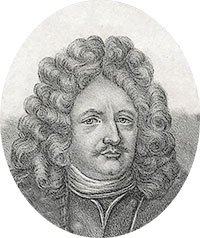 W
WRobert Lichton (1631–1692), Lord of Ulishaven, Forfarshire, Scotland and Lord of Tervik. He was a Lieutenant General in the Swedish Army and President of the Superior Court of Justice (hovrätt) at Åbo.
 W
WAxel Erik Roos was a baron, lieutenant general in the Swedish army of Charles XII of Sweden, and governor of Dalsland.
 W
WJohn Ruthven was a military officer who served in Denmark and Sweden during the Thirty Years' War before returning for brief service in the British Civil Wars. He served first as a captain in Danish service from 1627. As King Christian IV of Denmark-Norway made peace with the Habsburg Emperor in 1629 Ruthven, along with many other Scottish soldiers in Danish service, then turned to Sweden to continue the war. He first appears in Swedish service in 1629 serving as a captain of the Scottish infantry at Stralsund under the command of Alexander Leslie. He was soon promoted lieutenant-colonel in Leslie's infantry regiment and led an infantry-regiment in the battle of Breitenfeld on 17 September 1631 as full colonel. He later took part in the battle at the Alte Veste near Nuernberg on 3 September 1632, and later took part in the bloody conquest of Landsberg/Lech (Bavaria) under the command of Lennart Torstensson.
 W
WGöran Silfverhielm was a Swedish Field Marshal.
 W
WAnders Fredrik Skjöldebrand was a Swedish count, lord of the realm, general, statesman and minister from the Skjöldebrand dynasty. He was also a knight of the Royal Order of the Seraphim and a holder of seat 18 of the Swedish Academy.
 W
WCount Georg Magnus Sprengtporten, was a Finland-Swedish politician, younger brother of Jacob Magnus Sprengtporten. As he defected to Russia, he went down Swedish history as a traitor.
 W
WBaron Jacob Magnus Sprengtporten was a Swedish and Finnish officer and politician, and half-brother of Georg Magnus Sprengtporten.
 W
WTorsten Stålhandske – Swedish for "Torsten Steelglove", sometimes written "Stålhansch" in the Swedish of the times, and referred to in German literature as Torsten Staalhansch, was a Finnish officer in the Swedish army during the Thirty Years' War.
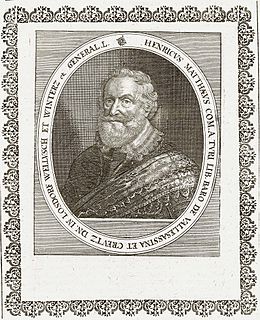 W
WCount Jindřich Matyáš Thurn-Valsassina, was a Czech (Bohemian) nobleman, one of leaders of Protestant Bohemian Revolt against Emperor Ferdinand II. He took part in events that led to the Thirty Years War, and after the war he became a military leader and diplomat in Swedish service, who eventually resided in Swedish Estonia.